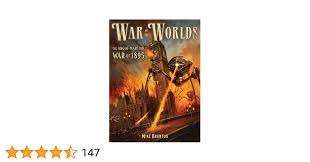The Enduring Legacy of War of the Worlds

Introduction to War of the Worlds
The concept of interplanetary conflict and alien invasions has fascinated humanity for generations. One of the most iconic stories in this genre is H.G. Wells’ War of the Worlds, first published in 1898. This seminal work not only captured the imagination of readers at the time but has continued to resonate through various adaptations across different media. Its relevance today is underscored by ongoing discussions about the nature of humanity’s place in the universe and the potential threat of otherworldly encounters.
Main Body: The Impact of War of the Worlds
The original novel is a critique of British imperialism and human hubris, set against the backdrop of a Martian invasion of Earth. Wells’ vivid portrayal of destructive technology and the fragility of human civilization strikes a chord with contemporary audiences, especially in today’s technologically advanced yet uncertain world. The narrative has spawned numerous adaptations, including radio dramas, films, and even video games, with one of the most famous adaptations being Orson Welles’ 1938 radio broadcast that caused widespread panic, illustrating the powerful impact of media.
Recent events have sparked renewed interest in the themes presented in War of the Worlds. In an era marked by advancements in space exploration and the search for extraterrestrial life, the story prompts critical questions: What if we are not alone? How would humanity react to such an encounter? These questions are echoed in popular culture, with television series and films continuously exploring these themes, reinforcing Wells’ influence on both creativity and social discourse.
Conclusion: The Significance of War of the Worlds Today
As we navigate a world increasingly defined by global and technological challenges, War of the Worlds serves as a pertinent reminder of our vulnerabilities and the ethical implications of our pursuits. The discussions it engenders about humanity, violence, and the unknown remain timely, encouraging deeper reflection on our actions and responsibilities. Given the rapid advancements in artificial intelligence and space exploration technologies, the narrative poses essential forecasts about our future, urging readers to consider not just what it means to be human, but what possibilities exist beyond our planet.








